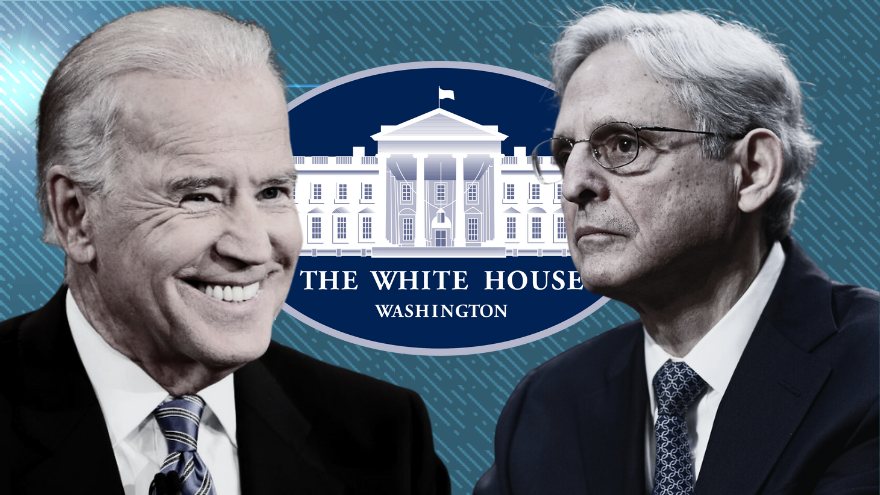The disclosures comes as the House Judiciary Committee holds a hearing to weigh whether to hold Attorney General Merrick Garland in contempt of Congress. In a 345-page report released in February, Hur detailed conversations with Biden, describing the president as a “well-meaning, elderly man with a poor memory.” Republicans have asserted that Hur’s statements suggest Biden is suffering from diminished mental acuity, which would call into question his fitness to serve as president. Hur concluded, following a five-hour interview last October, that criminal charges related to boxes of classified materials found at several of Biden’s properties were not warranted. A full transcript of Biden’s questioning was released, allowing lawmakers and the public to see what questions were asked and how Biden answered. In a letter dated May 16, White House Counsel Edward Siskel told House Judiciary Chairman Jim Jordan that Biden “has decided to assert executive privilege over the recordings,” which have been subpoenaed by the committee, as well as by the House Oversight Committee. The decision to exert executive privilege was also explained in detail by Garland in a letter to the Judiciary Committee in a 14-page letter a day prior. “We are disappointed the committees have refused to acknowledge or accommodate the [Justice] Department’s concerns and instead appear intent on proceeding with contempt votes,” Garland wrote. Siskel wrote in his letter that the Biden administration did not make a claim of executive privilege over Hur’s report, nor the transcript, allowing both documents to be released publicly. He also cited two potential serious harms that could arise from disclosure of the audio files: 1) producing the recordings “risks harming future law enforcement investigations by making it less likely that witnesses in high-profile investigations will voluntarily cooperate,” and 2) the audio files would be politicized. “The absence of a legitimate need for the audio recordings lays bare your likely goal — to chop them up, distort them, and use them for partisan political purposes,” wrote Siskel. “Demanding such sensitive and constitutionally-protected law enforcement materials from the Executive Branch because you want to manipulate them for potential political gain is inappropriate.”President Joe Biden is asserting executive privilege to prevent House Republicans from accessing audio recordings of his interview with Special Counsel Robert Hur, who investigated Biden over his handling of classified documents from his time as vice president.
Loading...
Despite significant pushback from the Biden administration, which is suggesting that lawmakers only want the recordings to politicize them during an election year, there has been interest from other non-legislative groups.
According to legal documents posted by the Oversight Committee, multiple news organizations have submitted Freedom of Information Act requests to obtain access to the recordings, including ABC News, the Associated Press, Bloomberg, CBS News, The Wall Street Journal, Reuters, and The Washington Post.
The Justice Department warned Congress that contempt proceedings would create “unnecessary and unwarranted conflict,” with Assistant U.S. Attorney General Carlos Uriarte advising, “It is the longstanding position of the executive branch held by administrations of both parties that an official who asserts the president’s claim of executive privilege cannot be held in contempt of Congress.” House Speaker Mike Johnson said during a press conference that the Biden administration was refusing to release the audio files out of fear. “The American people will not be able to hear why prosecutors felt the President of the United States was in Special Counsel Robert Hur's words a ‘elderly man with a poor memory and thus shouldn't be charged,” Johnson told reporters. “Just think about that for a moment. President Biden is apparently afraid for the citizens of this country and everyone to hear those tapes,” Johnson continued. “They obviously confirm what the special counsel has found and would likely cause — I suppose, in his estimation — such alarm with the American people, that the president is using all of his power to suppress their release.”Loading...

